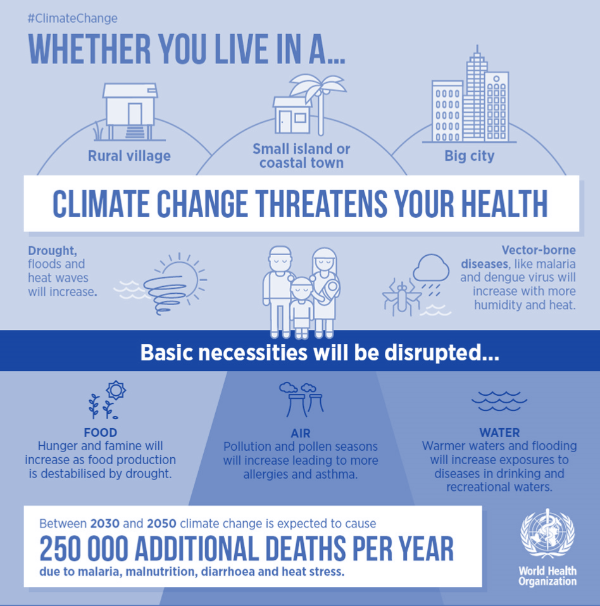OHNL - October 2017
Climate Change: A One Health Call to Action
Author
Crystal Futrell
Master of Public Health Student
College of Veterinary Medicine
Kansas State University
Climate change not only impacts the Earth's environment at large including the atmosphere, hydrosphere, and lithosphere, but it also affects the ecosphere including the humans and animals. These effects are evident in large and small scales, such as the disruption of the micro biosphere. Ultimately, change in the climate initiates a chain of events which has serious repercussions for human and animal life [1].
To raise awareness about the risks for humanity, leaders from the World Health Organization, the World Meteorological Organization and the United Nations Environment Programme collaborated to produce the "Climate Change and Human Health: Risks and Responses" report that indicated the following impacts of climate change [2]:
- Freshwater decline due to increased temperatures, drought
- Farmland degradation due to erosion, compaction, salinization
- Temperature-related illness and death increase from heatwaves and extreme climate events
- Air pollution-related health effects due to warmer temperatures and increased risk of land fire
- Vector-borne and rodent-borne diseases due to extended warm seasons
- Water and food-borne diseases due to extreme weather events causing floods, warmer temps
- Weakening the quality and accessibility of health care and health access
These issues are complex, and a One Health systems approach is certainly needed to address these complexities. In this issue of the One Health Newsletter, the impact of climate change on pollinator, pest, and vector life will be highlighted. The interdependence of these events with human and animal health is emphasized.
Resources:
Contact Us
